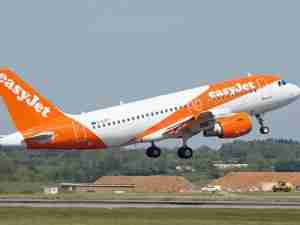GE Alumni Help Resolve High-Stakes Feud Between Boeing, Supplier
By: | Aug 02 2017 at 11:31 AM | Air Cargo
Two General Electric Co. alumni are taking a big step toward unraveling aerospace’s Gordian knot: a sprawling, four-year industrial dispute that touches every Boeing Co. commercial jet.
Kevin McAllister, 54, and Tom Gentile, 53, once worked so closely selling GE’s jet engines and service deals to airlines that they were “joined at the hip,” as one of them later quipped. After publicly sparring this year in their new roles, they have hammered out a tentative pact that would break a contract deadlock pitting Boeing against Spirit AeroSystems Holdings Inc., a supplier that used to be part of the Chicago-based planemaker.
The stakes could hardly be higher. Boeing needs an agreement that will tamp down costs on the 737 Max, a crucial source of revenue, and help it avoid writing down a portion of the 787 Dreamliner’s $26.5 billion production losses. For Spirit, which Gentile now leads, the talks will be crucial in determining the company’s financial health, share price and role on Boeing’s next likely jetliner, dubbed the 797.
“I do know Tom Gentile really well, and I think a lot of him,” McAllister, who runs Boeing’s $65 billion commercial airplanes division, said when asked about the dispute during a June briefing. “He’s a terrific leader. We’ve made progress in some areas of this negotiation. We have a few pockets where we’re still not there yet. But I can tell you there’s a whole lot of energy on it from both sides of the equation.”
Stock Surge
Spirit soared the most in eight years Wednesday after the world’s largest aerostructures supplier disclosed that it had a memorandum of understanding with Boeing to replace long-expired contracts to provide major airframe components.
The deal still needs to be finalized, and it would extend Spirit’s losses on a key program for both companies: the carbon composite 787 Dreamliner. Even so, the agreement removes the lingering uncertainty that had weighed on Wichita, Kansas-based Spirit after Gentile in May bluntly warned analysts that the impasse might wind up in court.
“Spirit removed a major overhang today in announcing an agreement with Boeing on longstanding price negotiations,” Seth Seifman, an analyst at JPMorgan Chase & Co., said in a note to clients.
The standoff had involved agreements struck a dozen years ago, when the planemaker spun off Boeing Wichita to a private equity firm. One set of contracts cemented Spirit’s exclusive status for Boeing jets from the long-haul 747 jumbo to the lucrative 737 narrow-body. Another set terms for the initial 787 Dreamliner model through 2021.
Seeking Discounts
The contracts lapsed in May 2013 as Boeing started pressuring suppliers for discounts following the Dreamliner’s costly, tardy debut. Since the end of 2015, the companies have relied on temporary prices, agreeing to settle up once a final contract is in place.
“What’s fundamental is that Boeing wants to do better than its suppliers,” aviation consultant Richard Aboulafia said of the planemaker’s reputation for driving hard bargains. “Then there is the big gorilla in the corner, the single biggest cash machine: the 737.”
The impasse involved pricing for new models that didn’t exist when the original deal was struck, such as the 737 Max and two largest Dreamliner variants, Gentile said in early June. Spirit assembles about 70 percent of the narrow-body 737 and faces higher costs on the newest version in areas from engineering to fabricating significantly larger engine covers known as nacelles.
787 Pricing
The new deal framework sets a series of pricing discounts, known as step-downs, that kick in at predetermined points on the 787-9 and -10 programs. Boeing is counting on cost reductions from its suppliers to help erase the mountain of production losses.
The Boeing-Spirit deal also extends the number of planes covered by the 787 agreement to 1,300 units from the 1,003 carbon-composite jets covered under the current arrangement, and establishes a “planning block’’ through line unit 1,405.
That’s an indication that Boeing might also be planning to raise its accounting block – an estimate of sales used to calculate profits under the arcane rules of program accounting – from the current 1,300 planes.
“In an ideal world, SPR would not have taken another charge on the 787 that push cumulative losses on the program” near $1 billion for 1,400 units, Seifman said. But the company’s free cash flow appears to be intact, “which means more than any single program.”
New Jobs
The men spearheading the talks are relative newcomers to their companies. Both were hired last year. They once worked down the hall from each other at GE, where they pioneered the joint sale of service agreements and engines to low-cost carriers bursting onto the scene from Asia to Europe.
“We were joined at the hip for many years working together at GE Aviation,” Gentile said at a February conference. He described a “strong relationship” where the two men could still “pick up the phone and talk.”
The two men are a study in contrasts. “McAllister is smart and gregarious, a good guy focused on getting deals done. I’ve never gotten the sense from McAllister that it’s a zero-sum game,” said Ray Sisson, CEO of lessor AVi8 Air Capital, who worked with both executives last decade as a senior vice president at GE Capital Aviation Services. “Tom is quieter, more thoughtful, very direct.”
As head of the $11.4 billion services division from 2008 to 2011, Gentile mended fences with airlines that operated their own engine shops by offering them more flexible contracts and forging services alliances, said Rick Kennedy, a spokesman for GE Aviation. As Gentile moved on to GE Healthcare and then was named president of GE Capital, McAllister stepped into the services post.
McAllister is a data hound, a little rumpled, sometimes profane and loved by former customers like Tony Fernandes. The AirAsia BHD. Group CEO recalled McAllister’s dealmaking prowess when the budget carrier was deciding between engines made by Pratt & Whitney and a GE-Safran venture. The talks—leavened by banter—stretched over a series of meetings culminating in a helicopter ride with Jeffrey Immelt, the CEO of GE at the time.
“I said ‘I can’t sign this deal,”’ Fernandes recalled in an interview, “So Kevin said I should jump out of the helicopter now.”
They reached an agreement while still airborne. “We got a good deal. We worked hard,” Fernandes added.










